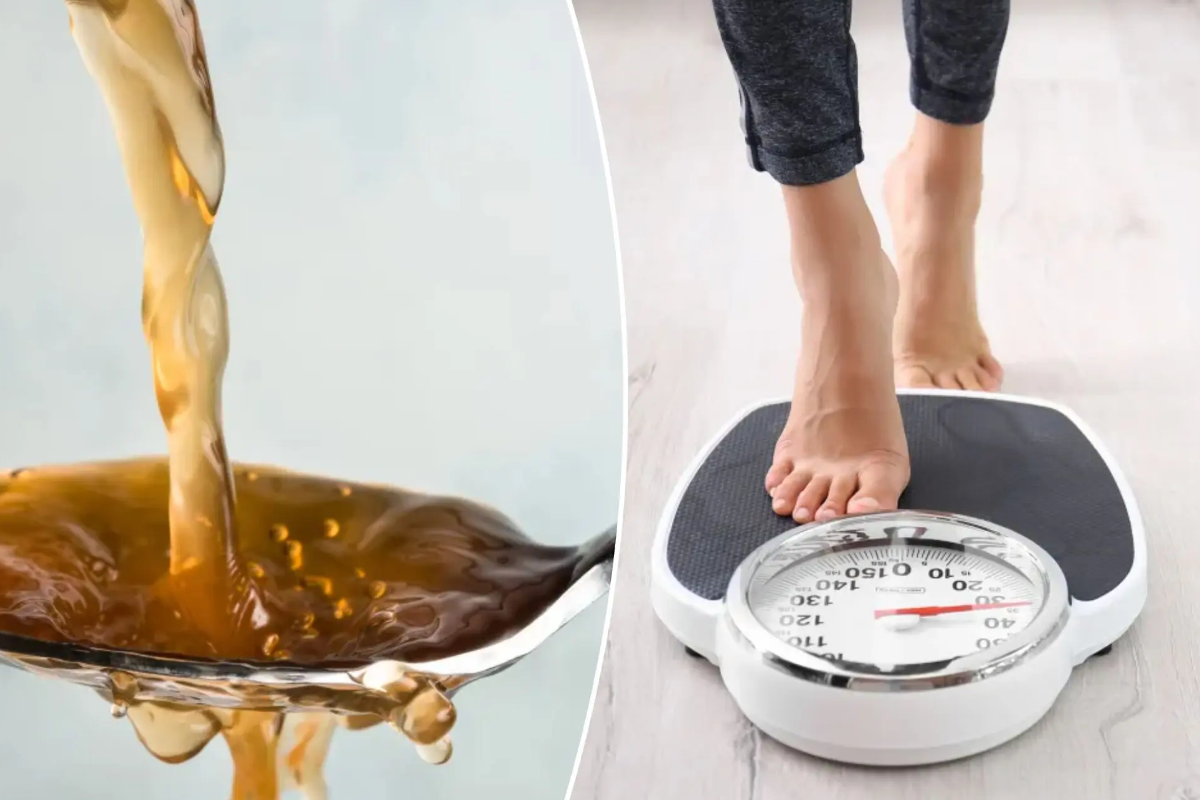In recent years, Apple Cider Vinegar (ACV) has been widely praised for its potential weight loss benefits, with many people using it as part of their daily diet and detox routines. However, a new trend gaining traction in 2025 is the concept of apple cider vinegar feet weight loss, where individuals soak their feet in ACV, believing it can help shed pounds, flush toxins, and improve metabolism. This unconventional method has sparked curiosity, with some claiming that ACV foot soaks promote detoxification and fat loss through the feet. But does this method really work?
Traditionally, ACV has been used for its antimicrobial, digestion-enhancing, and blood sugar-regulating properties. Many health enthusiasts swear by drinking diluted ACV before meals to support fat metabolism and reduce cravings. The idea of applying ACV externally through foot soaks, however, raises questions about its effectiveness in aiding weight loss. Some proponents argue that since the feet contain thousands of sweat glands and nerve endings, soaking them in ACV may encourage toxin removal and metabolic activation, leading to weight reduction.
While this method sounds promising to some, scientific evidence on ACV foot soaks directly leading to weight loss is lacking. The human body primarily eliminates toxins through the liver and kidneys, not the feet, making the weight loss claims questionable from a physiological standpoint. However, many users still report feeling lighter, less bloated, and more energized after ACV foot soaks, which has led to its growing popularity.

How Apple Cider Vinegar Supports Weight Loss
Apple Cider Vinegar (ACV) has been widely studied for its potential role in weight management, primarily due to its acetic acid content. While the idea of apple cider vinegar feet weight loss is still under debate, there is solid scientific evidence supporting ACV’s ability to influence metabolism, fat burning, and appetite regulation when consumed internally. Understanding how ACV works inside the body can help determine whether external application via foot soaks has any real impact on weight loss.
The Scientifically Backed Benefits of ACV for Weight Loss
Several studies have highlighted the role of acetic acid, the active compound in ACV, in promoting fat metabolism, reducing appetite, and stabilizing blood sugar levels. One study published in the Journal of Functional Foods found that participants who consumed 1-2 tablespoons of ACV daily for 12 weeks experienced significant reductions in body weight, belly fat, and overall BMI compared to those who did not.
ACV supports weight loss through several key mechanisms:
- Enhancing Fat Metabolism – Acetic acid has been shown to increase the rate at which fat is broken down and used for energy.
- Suppressing Appetite – ACV helps regulate hunger hormones, leading to reduced calorie intake and fewer cravings.
- Stabilizing Blood Sugar Levels – Research published in Diabetes Care indicates that ACV consumption before meals reduces blood sugar spikes by up to 34%, which can prevent insulin-related fat storage.
How Acetic Acid Aids Digestion, Appetite Suppression, and Blood Sugar Control
One of the key reasons ACV is linked to weight loss is its ability to slow gastric emptying, meaning that food stays in the stomach longer, helping people feel fuller for a longer period. This reduces overall calorie consumption, making it easier to maintain a caloric deficit, which is essential for fat loss.
Additionally, ACV contains probiotic properties that support gut health and digestion, improving nutrient absorption and reducing bloating. A healthy gut microbiome is associated with better weight management and a lower risk of obesity.
Comparing Internal ACV Consumption to External Application via Foot Soaks
While drinking ACV has proven metabolic benefits, the idea of absorbing acetic acid through the feet for weight loss remains unproven. The skin is a protective barrier that limits the absorption of many substances, including acetic acid, making it unlikely that foot soaks can deliver the same metabolic effects as oral consumption.
Dr. Joshua Zeichner, a dermatologist, explains, “Apple Cider Vinegar has beneficial properties when applied topically, such as antibacterial effects, but there is no evidence to suggest it can penetrate the skin deep enough to affect metabolism or fat burning.” This suggests that while ACV foot soaks may offer relaxation benefits, they are unlikely to induce weight loss directly.
While Apple Cider Vinegar has legitimate fat-burning and appetite-suppressing effects when consumed, there is no scientific proof that soaking feet in ACV delivers the same benefits. If weight loss is the goal, internal consumption combined with a healthy diet and exercise is the best approach.
Do Apple Cider Vinegar Foot Soaks Really Work for Weight Loss?
The concept of apple cider vinegar feet weight loss has gained attention in 2025, with some people believing that ACV foot soaks can detox the body, improve metabolism, and promote fat loss. While drinking ACV has been scientifically proven to support weight management, the idea that it can be absorbed through the skin to deliver the same effects is highly debated. In this section, we explore whether ACV foot soaks truly contribute to weight loss and what experts have to say about skin absorption and detoxification claims.
Can ACV Be Absorbed Through the Feet to Influence Metabolism or Fat Loss?
One of the most common claims about ACV foot soaks is that acetic acid can be absorbed through the skin and stimulate fat burning. However, there is no scientific evidence supporting this idea. The skin acts as a barrier, preventing most substances from entering the bloodstream in significant amounts. While ACV can have topical benefits, such as reducing foot odor or fungal infections, its ability to directly influence metabolism through foot absorption remains unproven.
Dr. Rachel Nazarian, a dermatologist, explains, “The skin is highly effective at blocking external substances from entering the body. While ACV may offer antibacterial properties when applied topically, it is unlikely that acetic acid can penetrate deeply enough to impact metabolism or fat loss.”
Expert Opinions on Skin Absorption and Detox Claims
Many supporters of ACV foot soaks claim that they help detoxify the body, leading to weight loss and reduced bloating. However, the concept of foot detoxification is widely regarded as a myth. The liver and kidneys are the body’s primary detoxification organs, and there is no medical evidence that toxins exit through the feet.
A study published in the Journal of Environmental and Public Health reviewed the effectiveness of foot detox baths and found that they do not remove toxins from the body. Sweating through the feet is a natural process, but it does not lead to significant toxin removal or fat loss.
According to Dr. Aaron Glatt, an infectious disease specialist, “Detox foot soaks and similar treatments do not remove toxins from the body. Weight loss happens when a caloric deficit is achieved through diet and exercise, not through soaking feet in vinegar.”
Why Some Users Report Feeling Lighter and Less Bloated After ACV Foot Soaks
Despite the lack of scientific evidence, some people who use ACV foot soaks report feeling lighter, more refreshed, and less bloated after their sessions. There are a few possible reasons for this:
- Water Weight Reduction: Soaking feet in warm water can promote mild sweating, which may lead to temporary water weight loss.
- Improved Circulation: Warm foot soaks can increase blood flow and relax muscles, leading to a lighter sensation in the legs and feet.
- Reduced Inflammation: ACV has anti-inflammatory properties that may soothe tired feet and provide a general sense of well-being.
However, these effects are temporary and should not be mistaken for actual fat loss.
While Apple Cider Vinegar foot soaks may provide relaxation and foot health benefits, they are not a scientifically proven method for weight loss. The primary benefits of ACV for weight loss come from internal consumption, where acetic acid can directly regulate appetite, boost metabolism, and control blood sugar levels.
If you’re looking to lose weight effectively, combining ACV consumption with a balanced diet and exercise is a far more reliable strategy than relying on foot soaks.

How to Use Apple Cider Vinegar Foot Soaks Correctly
While apple cider vinegar foot soaks may not directly cause weight loss, they can still be a beneficial self-care practice for relaxation, circulation improvement, and foot health. If you’re interested in using ACV foot soaks as a complementary wellness routine, it’s essential to do so correctly to avoid skin irritation and maximize potential benefits. This section covers the best way to prepare an ACV foot soak, recommended soaking times and dilution ratios, and how to integrate it with healthy weight loss habits.
Apple Cider Vinegar and Weight Loss: The Truth About Foot Soaks in 2025
The Best Way to Prepare an ACV Foot Soak
To create a safe and effective Apple Cider Vinegar foot soak, follow these simple steps:
Ingredients: Apple Cider Vinegar
- 1 cup of raw, organic Apple Cider Vinegar (with the mother)
- 4–6 cups of warm water
- ½ cup of Epsom salt (optional, for additional relaxation and circulation support)
- A large foot basin or tub
Instructions:
- Fill the basin with warm water, ensuring the level is high enough to fully cover your feet.
- Add 1 cup of Apple Cider Vinegar to the water.
- Stir in Epsom salt if desired—this helps with muscle relaxation and detoxification.
- Soak your feet for 20–30 minutes, allowing the ACV mixture to cleanse and soften the skin.
- After soaking, rinse your feet with clean water and pat dry.
- Apply a moisturizing lotion or coconut oil to prevent dryness, as ACV can be dehydrating to the skin.
Recommended Soaking Times, Dilution Ratios, and Frequency
To avoid skin irritation, it is important to properly dilute ACV and limit the frequency of use.
- Dilution Ratio: A 1:4 ratio of ACV to water is generally safe for most skin types. If you have sensitive skin, start with ½ cup of ACV per 6 cups of water.
- Soaking Time: Limit each foot soak to 20–30 minutes to prevent overexposure to acetic acid.
- Frequency: ACV foot soaks can be done 2–3 times per week. Daily use is not recommended, as it may lead to skin dryness or irritation.Since ACV foot soaks alone do not cause weight loss, they should be combined with evidence-based weight loss methods for the best results. Amanda Halterman Wei Here’s how:lone do not cause weight loss, they should be combined with evidence-based weight loss methods for the best results. Here’s how:
- Drink ACV Before Meals – Research suggests that consuming 1–2 tablespoons of ACV diluted in water before meals may help suppress appetite, improve digestion, and regulate blood sugar levels, making it a more effective weight loss tool than external application through foot soaks.
- Follow a Nutrient-Dense Diet – Pairing high-protein, fiber-rich, and whole foods with ACV can support metabolism and fat burning. Reducing processed foods and sugar enhances the effectiveness of ACV in weight management.
- Stay Active – Engaging in daily physical activity such as walking, strength training, or high-intensity workouts burns calories and accelerates fat loss far more effectively than passive foot soaking.
- Prioritize Hydration – Drinking plenty of water helps flush out toxins naturally, improving digestion and reducing bloating—a benefit some mistakenly attribute to ACV foot soaks.
Although Apple Cider Vinegar foot soaks do not directly contribute to fat loss, they can be a relaxing and beneficial addition to a wellness routine. Their main benefits lie in improving circulation, reducing inflammation, and promoting skin health, rather than burning calories or detoxifying the body.
Potential Risks and Side Effects of ACV Foot Soaks
While Apple Cider Vinegar foot soaks are generally safe for most people when used correctly, improper use can lead to skin irritation, dryness, and increased sensitivity. Since ACV is highly acidic, overuse or incorrect dilution may cause discomfort rather than benefits. This section covers potential side effects, who should avoid ACV foot soaks, and safe usage tips to minimize risks while maximizing benefits.
Possible Skin Irritation, Dryness, and Sensitivity from Excessive ACV Exposure
Apple Cider Vinegar contains acetic acid, which gives it its antibacterial and antifungal properties. However, prolonged exposure to acetic acid can lead to:
- Dryness and peeling – ACV can strip the skin of its natural oils, leading to flaky and irritated skin.
- Burning or redness – High concentrations of ACV may cause a stinging or burning sensation on sensitive skin.
- Increased skin sensitivity – Frequent foot soaks may weaken the skin barrier, making it more susceptible to environmental damage or infections.
Dr. Joshua Zeichner, a board-certified dermatologist, warns, “Apple Cider Vinegar is highly acidic, and direct contact with the skin for prolonged periods may cause irritation, especially for those with sensitive skin or open wounds.” To prevent irritation, it is crucial to follow proper dilution guidelines and avoid overuse.
Who Should Avoid ACV Foot Soaks Due to Skin Conditions or Medical Concerns?
While most people can safely use ACV foot soaks, certain individuals should avoid them or consult a doctor before use:
- People with sensitive skin or eczema – The acidity of ACV can exacerbate existing skin conditions, leading to itchiness and flare-ups.
- Those with open cuts, blisters, or foot wounds – Soaking in ACV may cause pain, irritation, or even infection in broken skin.
- Diabetics with neuropathy or poor circulation – Since individuals with diabetes may have reduced sensation in their feet, they may not notice skin damage or irritation from an ACV soak.
- Anyone allergic to vinegar or acetic acid – If you experience rash, swelling, or itching after using ACV, discontinue use immediately.
Safe Usage Tips to Minimize Negative Effects While Maximizing Benefits
To enjoy the potential benefits of Apple Cider Vinegar foot soaks without adverse effects, follow these safe usage tips:
- Always dilute ACV properly – Use a 1:4 ratio of ACV to water to ensure safe acidity levels.
- Limit soak time – Keep each session to 20–30 minutes to prevent excessive skin exposure.
- Moisturize after soaking – Applying a hydrating lotion or coconut oil helps counteract ACV’s drying effects.
- Perform a patch test – Before fully soaking, dip a small part of your foot into the mixture to check for any adverse reaction.
- Use only 2–3 times per week – Avoid daily use, as frequent exposure can lead to skin damage and over-drying.
While Apple Cider Vinegar foot soaks are unlikely to promote weight loss, they can offer relaxation and potential circulation benefits when used safely. However, misuse can lead to skin irritation and increased sensitivity, making it essential to follow proper dilution and frequency guidelines.
Conclusion
The growing trend of apple cider vinegar feet weight loss has sparked curiosity, but there is no scientific evidence supporting the claim that soaking feet in ACV directly leads to fat loss. While Apple Cider Vinegar has well-documented benefits for digestion, metabolism, and appetite control when consumed, its external application through foot soaks does not influence fat metabolism or calorie burning in a meaningful way. The skin acts as a natural barrier, making it unlikely that acetic acid is absorbed deeply enough to impact weight loss processes.
However, ACV foot soaks can still offer relaxation, circulation improvement, and mild detoxification benefits. Many people report feeling lighter and less bloated after using them, but these effects are more likely linked to temporary water weight loss, improved blood flow, and anti-inflammatory properties rather than actual fat reduction. While foot soaks can be a part of a self-care routine, they should not be mistaken for an effective weight loss strategy.
For those serious about losing weight, internal ACV consumption, combined with a balanced diet and exercise, remains the most effective approach. Drinking diluted ACV before meals can help regulate appetite and blood sugar levels, while regular physical activity and proper nutrition are proven to contribute to sustainable fat loss. Ultimately, while Apple Cider Vinegar foot soaks may provide certain wellness benefits, they are not a shortcut to weight loss, and relying on scientifically backed methods will always be the most effective way to achieve lasting results.

